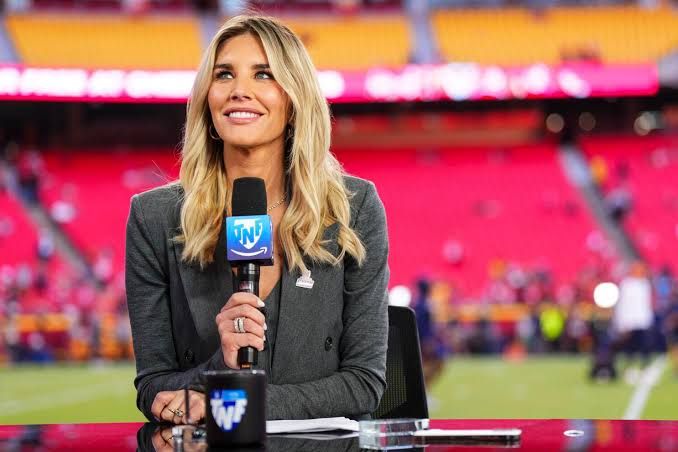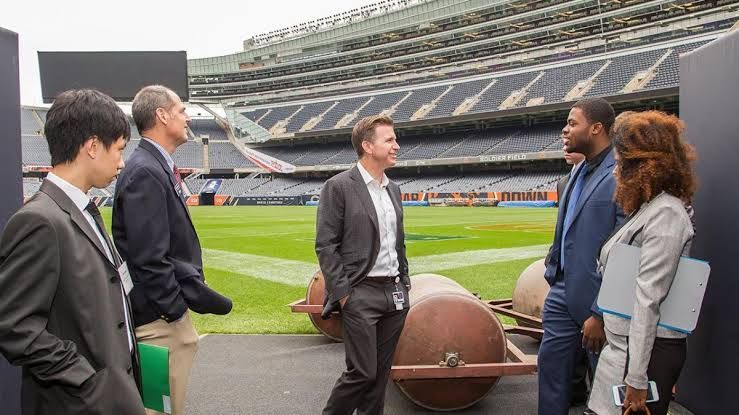The world of sports offers far more than just the thrill of playing on the field. As the global sports industry continues to grow, a wide range of rewarding career opportunities have emerged for individuals who are passionate about sports but may not wish to pursue a career as an athlete. From management and media to health and technology, the possibilities are vast and financially promising.
This article explores the top ten most promising sport careers beyond the playing field, highlighting areas that are often overlooked but crucial to the success of teams, athletes, and sporting organizations. These careers are ideal for those interested in fields like sports business, marketing, data analysis, sports psychology, athletic training, broadcasting, and event management. Whether you are interested in managing sports teams, analyzing player performance, or creating engaging content for fans, there are numerous professional paths that combine passion for sports with high earning potential.
These non playing sports careers are becoming increasingly popular due to the rise in sports commercialization, digital transformation, and global fan engagement. Discover how these roles contribute to the evolution of modern sports and why they are considered some of the most promising jobs in the sports industry today.
The Top Ten Most Promising Sport Careers Beyond The Playing Field
10. Sports Writer and Broadcaster

Sports writers and broadcasters bring athletics to life for fans. A sports writer crafts stories of games, athletes and trends, working for newspapers, magazines or digital platforms. They blend storytelling with data and opinion to engage readers. Broadcasters narrate live action on radio, TV or streaming. Both roles require excellent communication, deep sports knowledge and storytelling flair. Salaries vary widely, from local coverage around $40 000 per year to six figures for national broadcasters .
These roles continue to grow as sports media evolves. In an industry where fan engagement and content creation are essential, writers and commentators provide narrative and analysis across platforms. They support media rights deals by creating compelling coverage and platforms rely on them to sustain audience loyalty. While traditional journalism is competitive, combining background in sports communication or journalism with digital skills such as podcasting or social posting can boost prospects. Certifications, hands‑on experience and persistent coverage of trending events position writers and broadcasters as key storytellers in the modern sports ecosystem.
9. Sports Public Relations or Corporate Partnerships Manager

Sports PR and corporate partnerships professionals shape and protect image for teams, leagues and athletes. In PR, the role includes writing press releases, managing media relations, handling crises and coordinating interviews or events. Corporate partnerships managers negotiate sponsorships, activate deals and foster brand alliances. These roles bring revenue and trust to sports organizations. The Bureau of Labor Statistics projects public relations roles to grow around 10 percent by 2026 .
Industry hiring is rising as private equity and expansion leagues fuel demand for marketing, brand and revenue leaders . Professionals craft strategy to engage fans, sponsors and media while ensuring consistent messaging. Effective communication and high emotional intelligence play a critical role. As women’s sports and global leagues expand, these roles are multiplying. Internships or agency experience paired with ability to secure deals and tell brand stories help establish credibility. These positions bridge sport operations and commercial strategy making them essential to modern sports organisations.
8. Sports Social Media and Digital Content Manager

Social media managers for sports teams and athletes produce digital content for platforms like Instagram, TikTok, YouTube and Twitter. They engage fans with behind‑scene clips, live updates and interactive campaigns. Their work drives ticket sales, sponsorship reach and brand loyalty . As sports organizations now operate like media companies, digital marketing skills are essential for modern fan engagement .
Growth in streaming, apps and personalized experiences has created high demand for digital experts. Credentials in content creation, marketing tools and analytics tools help craft strategies that boost reach and retention. Success requires creativity, agility and a deep understanding of platform trends. Those who excel build community, manage rapid feedback loops and create narrative content that resonates with global audiences. Entry often comes via internships in marketing departments or digital agencies covering sports. Effective execution can propel careers into leadership roles in commercial operations.
7. Sports Event Manager or Coordinator

Sports event managers plan and deliver tournaments, matches and league events. Responsibilities include venue selection, logistics, budgeting, vendor and vendor management, ticket systems, safety protocols and sponsorship coordination . A strong grasp of organization and negotiation is necessary. These professionals ensure seamless operations before, during and after events. As major sporting events grow, hiring for event roles is rising, including roles focused on sustainable and inclusive operations .
Building experience often involves working at entry‑level or volunteering for small tournaments, progressing into roles at leagues, clubs or event agencies. Effective planners deliver memorable experiences for fans and sponsors while managing cost and regulatory compliance. People skills and attention to detail matter as much as marketing and logistic savvy. Those who thrive in fast paced and high pressure environments help elevate fan engagement and deliver commercial results.
6. Sports Facility or Venue Operations Manager

Facility managers oversee operations of stadiums, arenas, gyms and training facilities. Duties involve scheduling, maintenance, safety compliance, equipment and vendor coordination, emergency planning, staffing and fan experience concerns . These roles are essential for successful venue operations and often have salary ranges from mid‑30 000 to over 120 000 depending on scale . As venues adopt advanced systems, demand is growing for operators who can integrate technology and sustainability measures .
Operations managers also liaise across marketing, finance, security and IT functions. Strong leadership, organizational skills and understanding of facility systems are key. Entry can come through administrative, customer service or maintenance roles, progressing to leadership with certification or degrees in facility or event management. In a global industry expanding rapidly, facility experts ensure efficiency while supporting fan satisfaction and operational excellence.
5. Athletic Trainer or Exercise Physiologist

Athletic trainers and exercise physiologists support athlete health and performance. Athletic trainers handle injury prevention, emergency response, rehabilitation and conditioning for sports teams or individuals. They require certification like ATC and often earn up to around 80 000 per year in the top tier . Exercise physiologists study how exercise affects the body and design programmes to improve endurance, flexibility and recovery.
They also support rehabilitation from chronic conditions or post injury . Job growth is strong: athletic training is expected to grow around 14 percent to 2032 while exercise physiology also rises in demand . These careers are ideal for hands on professionals with degrees in kinesiology, exercise science or related fields, often working with teams, clinics or athletes directly. Their expertise ensures safe performance and faster recovery, making them indispensable to modern sport science and medical teams.
4. Sports Psychologist

Sports psychologists help athletes handle pressure, build confidence, set goals and recover mentally from injury or loss. They combine counselling techniques with performance psychology to boost resilience and mental toughness . Salaries in this field often range between 75 000 and 150 000 depending on experience and clientele .
As mental health awareness grows in sports, teams increasingly seek psychologists for support. Growth is fuelled by competitive demands, expectation management and athlete welfare focus. Degrees, licensing and supervised practice are requirements. Also sports psychology roles are expanding beyond teams into consulting, private practice or wellness platforms. Their impact is seen in better performance, fewer burnout cases and a stronger team culture. For professionals skilled in psychology and sport context, this remains a high impact career path.
3. Sports Agent or Talent Representative

Sports agents represent athletes in contract negotiation, endorsement deals and career planning. They act as intermediaries between athletes, teams, sponsors and media . Compensation is often commission‑based and can exceed six figures for high profile clients. The Bureau of Labor Statistics lists median agent salary around 80 000 annually for agents with mid‑level clients .
Agents require negotiation skills, legal savvy and strong networks. Demand is rising as athlete branding and global sports markets grow . Representing athletes in growing women’s leagues and global sports expands opportunity. Path into the field often includes law, sports management or agency internships. Successful candidates build trust, deliver landing deals and manage public image. Agents shape careers and revenue streams for athletes, making the role high stakes and high reward.
2. Sports Marketing Manager

Sports marketing managers lead campaigns to boost brand, ticket sales and sponsorship for teams, athletes or events. They craft strategies, manage partnerships, oversee promotions and coordinate across media channels including digital, print and experiential activations . Median earnings for marketing managers in sports hover around 140 000 annually in senior roles .
Private equity investment in sports and emergence of new leagues have accelerated demand for marketing executives able to think like media brands . Skills in campaign planning, analytics, communication and brand storytelling are essential. Education in marketing, sport business or communications combined with industry internships open doors. As global fanbases and digital engagement expand, marketing professionals drive growth and shape fan experiences in dynamic ways.
1. Sports Statistician or Data Analyst

At number one lies the data driven role of sports statistician or data analyst. These professionals translate raw performance metrics into insights on player health, strategy, scouting, fan behaviour and media rights valuation . The Bureau of Labor Statistics anticipates statistician roles growing around 30 percent to 2032 and analysts earn median over 60 000—often scaling into six figures in pro leagues . Teams and leagues invest heavily in wearable tech, AI tools and predictive models to gain competitive advantage . Analysts work in team performance departments, media rights agencies and broadcast teams to fuel decision‑making across sport. A background in statistics, mathematics, computer science or economics is common. Real world experience analyzing datasets, familiarity with software and ability to translate data into stories are essential. Data analysts are critical to modern sport organisation success, making strategic contributions on and off the field.


https://shorturl.fm/BmtL2
https://shorturl.fm/WH7r6
https://shorturl.fm/0qpwK
https://shorturl.fm/zzeah
https://shorturl.fm/nLUET
https://shorturl.fm/VlIHg
https://shorturl.fm/vS8pV
https://shorturl.fm/63LTD
https://shorturl.fm/DVHOh